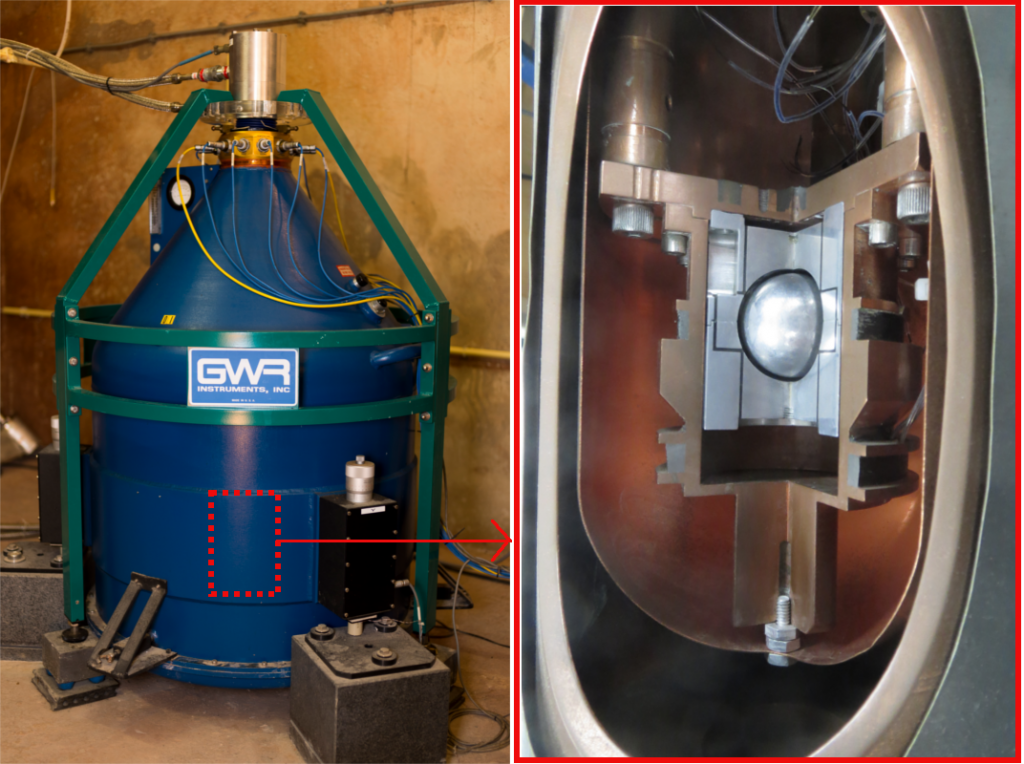Ten Thousand Days of Continuous Gravity Measurements in Membach
On 20 December 2022, the superconducting gravimeter in Membach (High Fens, Belgium) will have measured variations in gravity for 10 000 consecutive days. Installed on 4 August 1995 by the Royal Observatory of Belgium, this gravimeter has held a double world record since 18 September 2017: that of the instrument that has measured variations in gravity at a single location for the longest period of time in the world, and that of the longest circulation of electric currents in superconducting circuits.
The Principle of a Superconducting Gravimeter
The Membach superconducting gravimeter measures changes in gravity by levitating a sphere in a magnetic field. If gravity increases, the sphere will tend to sink; if it decreases, it will tend to rise.
To ensure the stability of the magnetic field, the device is made superconducting by keeping it at a temperature of -269 °C using a liquid helium bath. At this temperature, the electrical resistance in the conductors disappears. As a result, any current injected into the device flows, in theory, for eternity, without any external input to maintain it.
In Membach, we have shown that this theoretical prediction is valid for at least 27 years! No other physics experiment in the world has done the same.

The Membach’s superconducting gravimeter and an exploded view of the sensor with the levitating sphere. Left photo: E. Coveliers
Importance of the Gravimeter for Earth Science Research
Gravity variations are due to terrestrial tides caused by the relative movements of the Earth, the Moon and the Sun, the movements of atmospheric masses and groundwater, as well as by various geophysical phenomena.
In the research of the Royal Observatory of Belgium, the measurements of the Membach gravimeter, which have the accuracy of one hundredth of a billionth (10–11) of g (g = 9.81 m/s²), provide a better understanding of long-term variations in gravity, caused by slow tectonic movements or climatic variations. This is also important for the study of the water cycle, which influences gravity.
Among the discoveries made with the Membach gravimeter are the measurement of the effect of tree evapotranspiration on gravity, the possibility of assessing the quality of precipitation observations by weather radars and, most recently, the measurement of the water saturation state of soils during the catastrophic and deadly floods in July 2021. The latter study demonstrates the possibility of using gravity networks as flood warning systems.
To date, this gravimeter participates in many research projects and the Royal Observatory of Belgium hopes to be able to perform this type of measurement for many years to come.
Scientific contact:
Michel Van Camp
Avenue Circulaire 3
BE-1180 Uccle
Tel: +32 – (0)2 373 02 65
mvc AT oma.be
http://www.seismology.be
